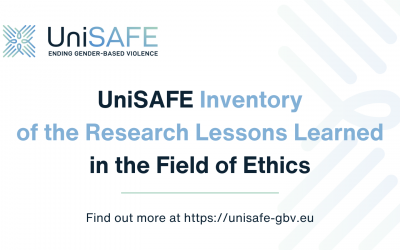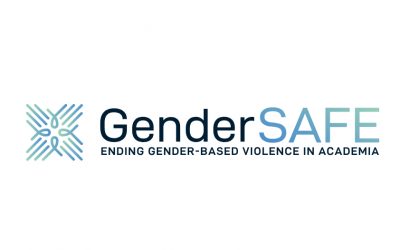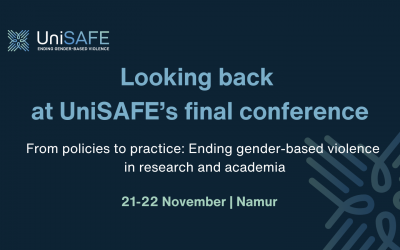On the 16th of January 2024, UniSAFE hosted a webinar addressing strategies to combat gender-based violence without formal complaints. The session, building upon the work of Dr Anna Bull, an expert on sexual harassment in higher education, highlighted the importance of adopting a proactive approach to handling informal complaints thus ensuring a safe environment for all.
Dr. Bull began the conversation by discussing the changing approach of universities: “A noticeable shift is occurring, where higher education institutions or employers are progressively taking on more of the risk and responsibility for reporting as major institutions have faced collapse due to a failure to proactively address reports of sexual harassment or violence.”
When handling reports of gender-based violence, higher institutions face specific challenges, such as confidentiality and anonymity issues. In the absence of formal reporting, higher education institutions receive information about gender-based violence in informal ways, which remains challenging to address.
Quoting Gemma White’s ‘Report for Publication and College Response’ (Trinity Hall Cambridge, 2022), the importance of addressing complaints, even these are not formally made: “A failure to take any action [in the absence of a formal complaint] contributes to an institutional environment in which such behaviour is known to be tolerated. Current and future College leadership must embrace a more proactive approach to responding to concerns, however the information is received.”
Suggested solutions include
- Adopting informal and proactive responses,
- Ensuring the institution has appropriate expertise
- Implementing precautionary measures
- Building trust
- Raising awareness.
The webinar wrapped up with an engaging interactive session, where members of the UniSAFE community and the audience discussed the practical applications of these strategies. Notably, the UniSAFE community showcased examples from universities in Slovenia, Italy, and Ireland, providing diverse perspectives and enriching the discussion with insights from different educational contexts.
Valuable resources:
- Gemma White ‘Report for Publication and College Response’ (Trinity Hall Cambridge, 2022), available at https://www.trinhall.cam.ac.uk/wp-content/uploads/2022/09/Report-for-Publication.pdf
- The 1752 Group, & McAllister Olivarius. (2020). Briefing no. 1: In cases of suspected sexual misconduct can a university pro-actively investigate and speak to potential witnesses in the absence of any formal complaint or complainant? https://1752group.files.wordpress.com/2020/03/the-1752-group-and-mcallister-olivarius_briefing-note-1.pdf
- The 1752 Group, & McAllister Olivarius. (2021). Briefing Note 3: Precautionary measures on receiving a report of staff sexual misconduct, bullying or discrimination. The 1752 Group. https://1752group.files.wordpress.com/2021/09/5272f-briefing-note-3-precautionary-measures.pdf
- Bull, A., & Shannon, E. (2023). Higher Education After #MeToo: Institutional responses to reports of gender-based violence and harassment. The 1752 Group/University of York. https://1752group.com/higher-education-after-metoo/
- See also Nicola Campbell in Wonkhe on using Report and Support anonymous data: https://wonkhe.com/blogs/what-use-are-anonymous-reports-of-sexual-violence & https://wonkhe.com/tag/sexual-harassment/
- Combat Harassment Tool (CHAT) – KU Leuven, Belgium: CHAT is an online risk assessment and monitoring screening tool. Via the user portal, the organisation can share a concise questionnaire with (a group of) employees. They complete it anonymously. The report then gives insight into the bottlenecks and helps the organisation to map its social climate, assess and address risks. CHAT thus forms the basis for dialogue (a ‘chat’) on cross-border behaviour as a step towards an action plan: https://www.kuleuven.be/chat/
Additionally, UniSAFE offers further resources for further reading:
-
UniSAFE’s toolkit: Reflecting on how to address gender-based violence within your institution, draft a policy, or seeking to improve existing ones? Our toolkit is designed to support higher education institutions and research organisations in addressing gender-based violence. This comprehensive toolkit offers guidance on designing developing effective policies and implementing concrete measures, as well as providing evidence based for change!
-
Developing a Protocol for addressing gender-based violence in research and higher education institutions: UniSAFE guidelines: The “Guidance for Protocol development” serves as a comprehensive guide for research and higher education institutions seeking to create protocols addressing gender-based violence within their settings.



